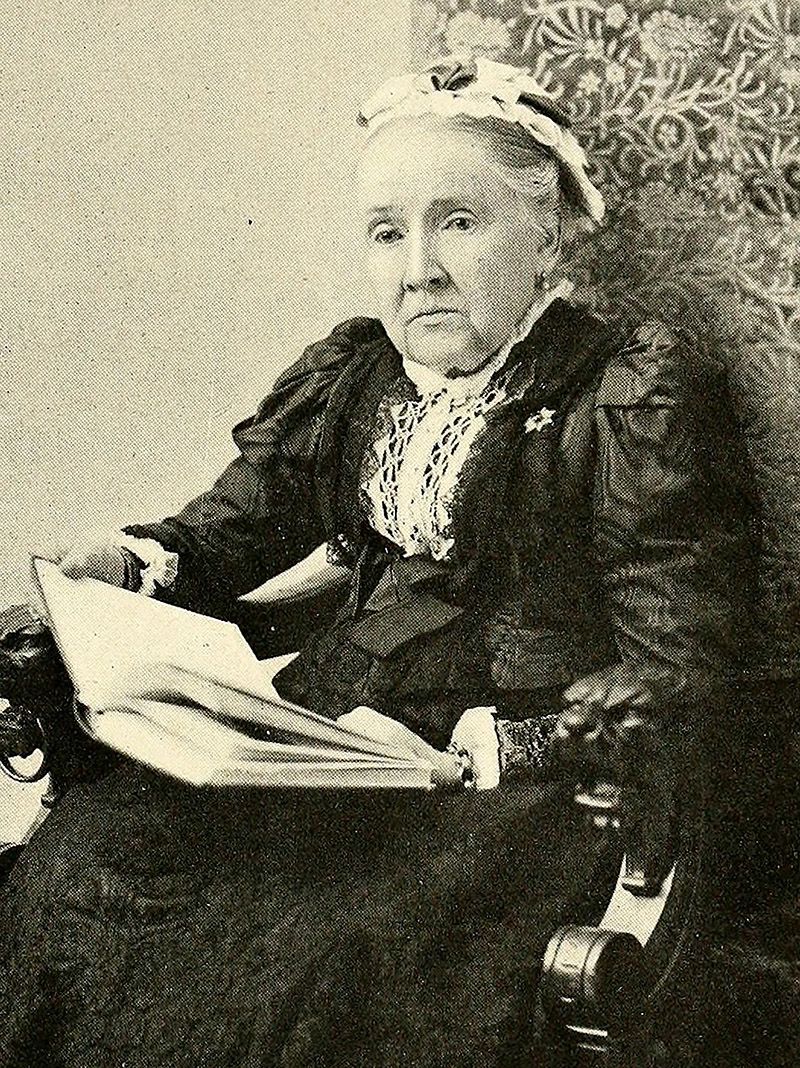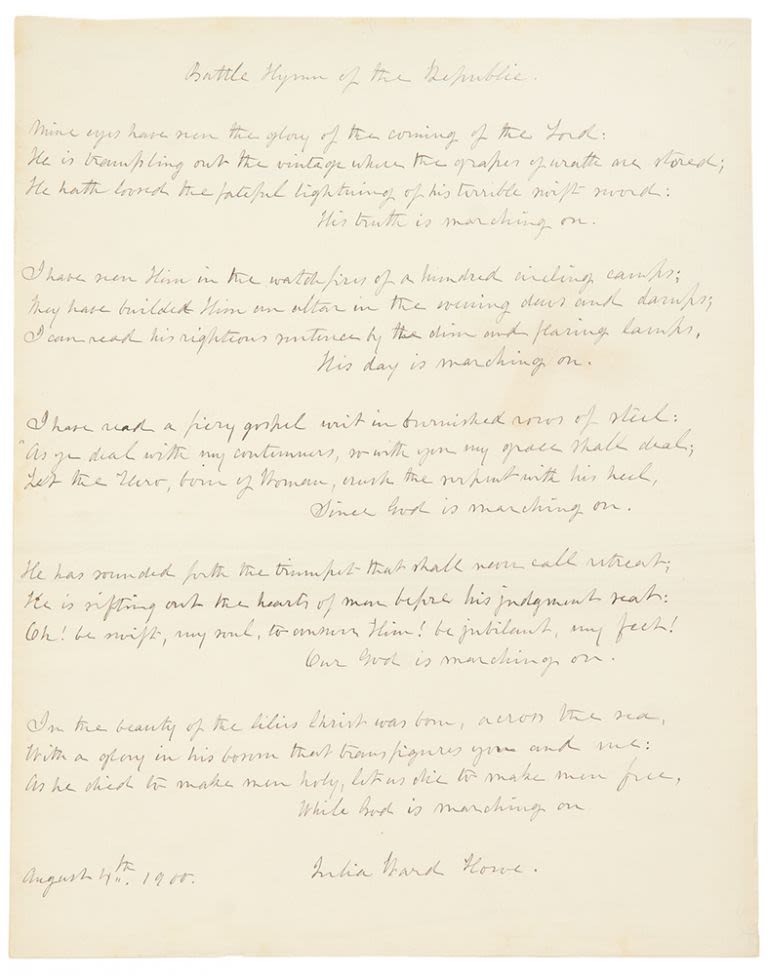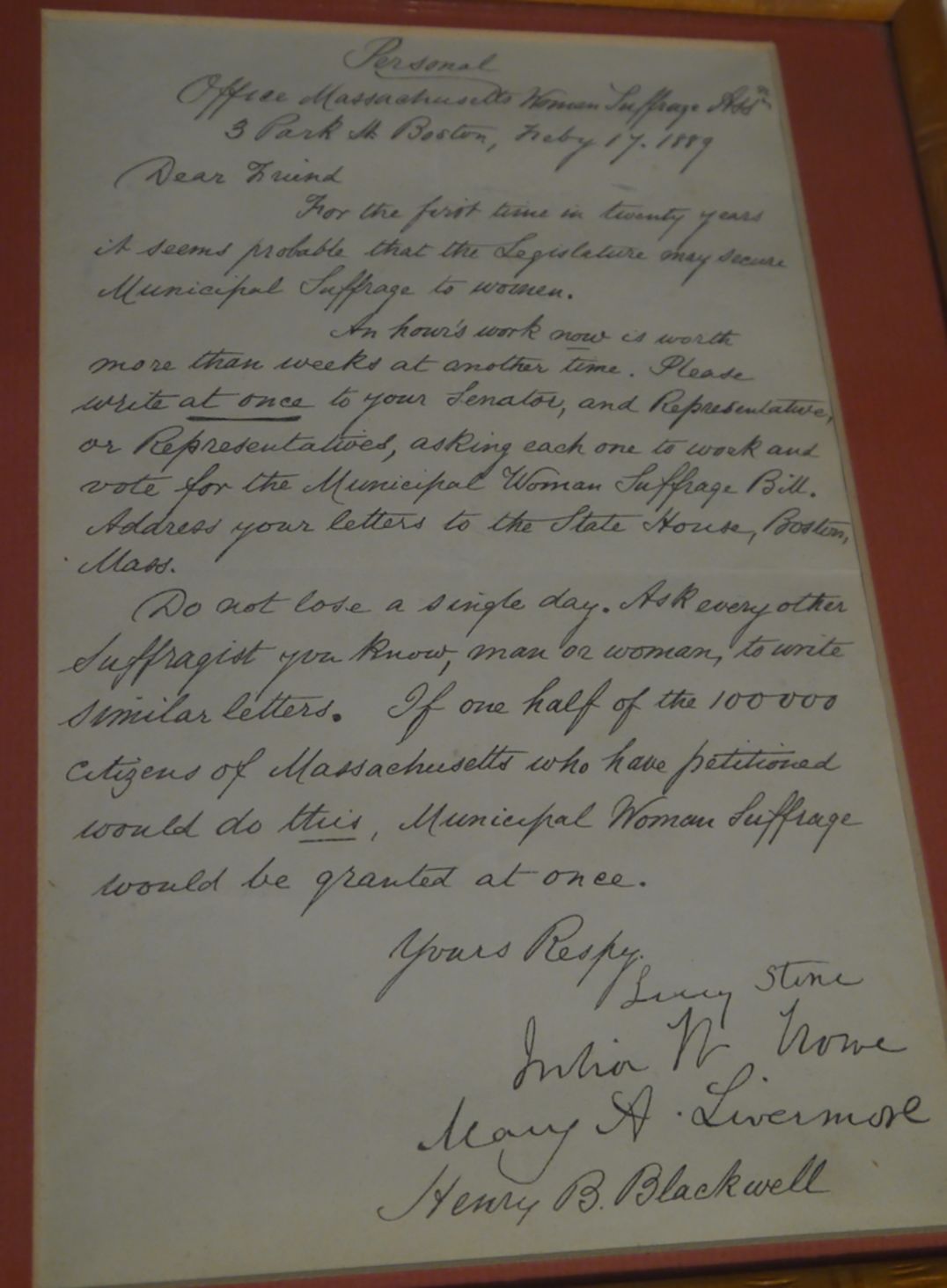Julia Ward Howe and her family came to Portsmouth every summer from the 1850s to 1910, the year she died at her Oak Glen home on Union Street. Julia was born in New York City on May 27, 1819, and had deep family roots in Rhode Island. On her father’s side, she was descended from Roger Williams and colonial Rhode Island governors. Her father, Samuel Ward, was a banker and her mother was Julia Cutler. Julia’s mother died when she was only five years old, but Julia, following in her mother’s footsteps, became an author. She began writing at a young age, and contributed to the New Yorker Magazine when she was only seventeen. Throughout her career, Julia wrote poems, plays, travel sketches, essays, stories, book and play reviews.
She is best remembered for writing the poem which was set to music as “Battle Hymn of the Republic.” While visiting Washington with her husband during the Civil War, the couple witnessed soldiers marching to the tune of “John Brown’s Body.” The chaplain who accompanied them suggested that Julia write more appropriate lyrics for the song. Julia later reflected about how the hymn was written. “The next morning just about 4 o’clock I woke suddenly. As I lay there in bed the words of the hymn began to form themselves in my mind. I got up and by the faint light of the early morning scrawled them on a piece of paper and then went back to bed and sound asleep again. That is the way the hymn was written.” (Saturday Evening Post- as quoted in the Newport Mercury May 30, 1914)
Julia and Samuel Howe married in Boston in 1843. The Howe family lived in Boston where Samuel was a founder of the Perkins School for the Blind. Julia loved her children although she found pregnancy, childbirth, and caring for her six children challenging. She persisted in writing even when her husband, Samuel Gridley Howe, discouraged her efforts. She even had works secretly published so that her husband would not know about them.
When Julia became a widow, she was free to advocate for the reforms dear to her heart. She was active in all the reforms of the era - abolition, woman suffrage, the peace movement and the rights of women. She was the first to establish a “Mother’s Day” in Massachusetts and she intended it to be a day to promote peace. Julia was an important organizer for women’s issues, and her voice commanded attention. In the interest of gaining the vote for women, she helped found the New England Suffrage Association in 1868 and the statewide Massachusetts Women Suffrage Association. She was in favor of the 15th Amendment, which granted the vote to black men. This was a break with Susan B. Anthony and Elizabeth Cady Stanton. She sided with Lucy Stone in founding the American Woman Suffrage Association. She edited the Woman’s Journal for 20 years. In 1889, the groups were back together again to support votes for women.
Julia organized clubs of various sorts wherever she went. In 1873, she helped create the Association for the Advancement of Women to improve education for women and help them enter into professional jobs. Julia was especially fond of Women’s Clubs. When she died in 1910 at her Portsmouth home, her obituary in the Newport Daily News summarized all the aspects of her life. “She was a beauty, social queen, preacher, poet, anchor, a lover of music and all the fine arts and a friend of the oppressed in all nations, a platform speaker of great popularity, the maker of home the gentlest, most ideal and holy to be conceived, a loyal, helping and loving wife, and yet one of the most pronounced of woman suffrage; the friend and intimate of the rich and powerful of earth yet with a heart full of sympathy for the lowly, ignorant and downtrodden, and with pen and voice ready for their defense and uplift.”
Biography provided by Portsmouth Historical Society
Image from Library of Congress


